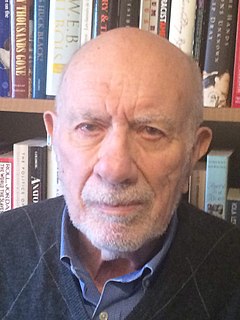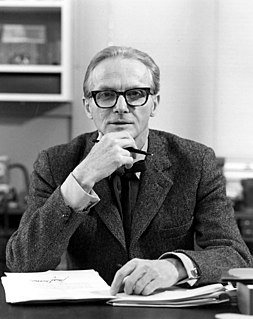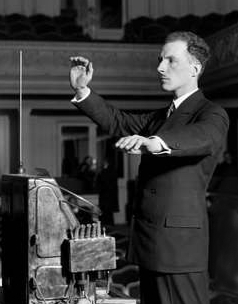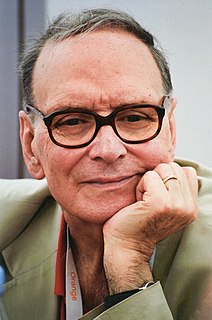A Quote by Robert Paul Wolff
It is when music is added that a film can come to life for a director. A live orchestra, playing the score as a conductor watches the film on a huge screen, often gives a fimmaker the first real glimpse of his soon-to-be-completed work. That's where the magic is.
Related Quotes
There is something about the live performance of an orchestra that makes it very different to a film. With a film, you can rewrite it in a way with the material you have, and in rehearsals, you're really trying out different things. In an orchestra, you can't do that. They separate as soon as the performance factor comes into play.
I urge pupils when studying a work and in order to master its most important aspic, the rhythmic structure, or the ordering of the time process, to do just what a conductor does with the score: to place music on the desk and to conduct the work from beginning to end as if it were played by someone else, an imaginary pianist with the conductor trying to impress him with his will, his tempo first of all, plus all the details of his performance.
Me and Kirby are very collaborative and it changes from film to film. The first project we worked on together, Derrida, we co-directed. The last film Outrage, I was the producer and he was the director. This film was much more of a collaboration - he is the director and I am the producer - but this is a film by both of us.
IN THE CINEMA A DIRECTOR EXPRESSES HIS INDIVIDUALITY FIRST AND FOREMOST THROUGH HIS SENSE OF TIME, THROUGH RHYTHM. RHYTHM GIVES COLOUR TO A WORK BY DISTINGUISHABLE STYLISTIC CHARACTERISTICS. RHYTHM MUST ARISE NATURALLY IN A FILM, A FUNCTION OF THE DIRECTOR'S INNATE SENSE OF LIFE AND COMMENSURATE WITH HIS QUEST FOR TIME.
There is something that might be called cinematic beauty. It can only be expressed in a film, and it must be present for that film to be a moving work. When it is very well expressed, one experiences a particularly deep emotion while watching that film. I believe that it is this quality that draws people to come and see a film, and that it is the hope of attaining this quality that inspires the filmmaker to make his film in the first place.
Film’s thought of as a director’s medium because the director creates the end product that appears on the screen. It’s that stupid auteur theory again, that the director is the author of the film. But what does the director shoot-the telephone book? Writers became much more important when sound came in, but they’ve had to put up a valiant fight to get the credit they deserve.
In music, what is very important is temporality of space and length, based on the breathing space the director gives the music within the film, by separating the music from various elements of reality, like noises, dialogues... That's how you treat music properly, but it doesn't always happen this way. Music is often blamed, but it's not its fault.









































